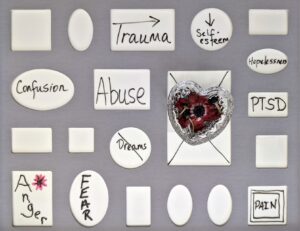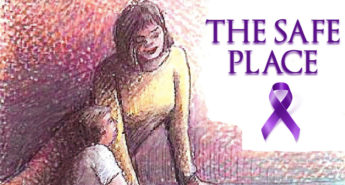 Post-traumatic stress disorder (PTSD) has had many names like “shell shock” and “battle fatigue,” it is a condition brought on by a terrifying or traumatic event that is difficult to recover from. It can last months or even years. People with this condition experience triggers that bring back vivid memories of the trauma accompanied by intense physical and emotional reactions. Anyone at any age can suffer from PTSD. PTSD is known to affect not just military veterans but anyone who has gone through a traumatic experience. “ In fact, about six out of every 100 American adults (about 6% of the population) will have PTSD in their lifetime, and eight out of every 100 women in the U.S. will experience it in their lifetime, compared to 4 out of every 100 men,” according to the U.S. Department of Veteran Affairs.
Post-traumatic stress disorder (PTSD) has had many names like “shell shock” and “battle fatigue,” it is a condition brought on by a terrifying or traumatic event that is difficult to recover from. It can last months or even years. People with this condition experience triggers that bring back vivid memories of the trauma accompanied by intense physical and emotional reactions. Anyone at any age can suffer from PTSD. PTSD is known to affect not just military veterans but anyone who has gone through a traumatic experience. “ In fact, about six out of every 100 American adults (about 6% of the population) will have PTSD in their lifetime, and eight out of every 100 women in the U.S. will experience it in their lifetime, compared to 4 out of every 100 men,” according to the U.S. Department of Veteran Affairs.
People may develop PTSD if they experience a trauma firsthand, witness a traumatizing event, learn about violence or tragedy that happened to someone else–like the murder of a family member or friend, or “experiencing repeated or extreme exposure” to details of traumatic events. The National Institutes of Health (NIH) notes, “adults may be more at risk of PTSD after trauma if they have previously experienced a childhood trauma, if they do not have a support system after the traumatic event, and/or are dealing with another stressor after the event, like a death or job loss, and/or have a history of mental illness or substance misuse”. https://www.health.com/condition/ptsd/ptsd-symptoms
Signs of PTSD:
- Flashbacks
- Nightmares
- Avoiding People, Places, or Things
- Being constantly on the lookout for threats
- Getting startled easily
- Depression
- Anger and Irritability
- Feeling reckless or self-destructive
- Chronic pain
- Feeling panicked
- Memory Loss
- Guilt or Shame
- Problems concentrating
- Suicidal thoughts
- Feeling like you are observing yourself
Symptoms can appear immediately following a traumatic event, or they can appear weeks, months, or even years later. If you’re experiencing some of these 17 PTSD symptoms, consider talking to a healthcare provider to get the help and support that is best for you.
Treatments for PTSD:
- Teaching you skills to address your symptoms
- Helping you think better about yourself, others and the world
- Learning ways to cope if any symptoms arise again
- Treating other problems often related to traumatic experiences, such as depression, anxiety, or misuse of alcohol or drugs
- Cognitive therapy
- Exposure therapy
- Eye movement desensitization and reprocessing
- Medications
We need to be more understanding, and empathetic about the trauma people are suffering from, that has caused their PTSD. If you or a loved one is struggling with PTSD, contact the Substance Abuse and Mental Health Services Administration (SAMHSA) National Helpline at 1-800-662-4357 for information on support and treatment facilities in your area.
References:
https://www.health.com/condition/ptsd/ptsd-symptoms
https://www.nimh.nih.gov/health/topics/post-traumatic-stress-disorder-ptsd#part_2238




Leave a Reply